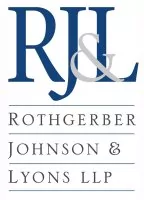So a "problem employee" has resigned before you had to terminate him. Your problems are over, right? No employee who has resigned can bring a claim against her employer, can she?
Not so fast. The law recognizes a doctrine of "constructive discharge," which means that under certain circumstances, an employee may claim that his separation from employment amounted to a firing even if he resigned. It is a good idea for employers to be familiar with the standards for constructive discharge, so that they can avoid "firing" an employee when they do not wish to do so.
The Colorado courts recognized the doctrine of constructive discharge, which had previously been applied in federal courts, in 1971 in the case of Colorado Civil Rights Commission v. State. There, the Colorado Court of Appeals held that the plaintiff, a teacher, had a claim for discharge, even though she resigned. The court noted that the employer's policy had been to presume that teachers would be rehired each year unless informed otherwise. The teacher had been informed that she would not be retained for the next year, and was encouraged to resign. The court held that, even if an employee resigns, the termination is considered a discharge if "sufficient words or actions by the employer would logically lead a prudent person to believe his tenure had been terminated."
Colorado cases recognize a claim for constructive discharge when there has been a significant change in working conditions that makes it so "difficult or intolerable that the employee has no other choice but to resign." In Montemayor v. Jaycor Communications, Inc., for example, the Colorado Court of Appeals held that a radio executive who had been demoted from company president to sales consultant could state a claim for constructive discharge. The court held that the plaintiff had been constructively discharged because other executives had "waged a campaign to undermine plaintiff's authority; to paint her as unstable, unethical, incompetent, and lacking in credibility; to humiliate her publicly in the eyes of her subordinates; and to eliminate her authority and demote her."
However, not every adverse set of working conditions will meet the requirements of establishing a constructive discharge. In Krauss v. Catholic Health Initiatives Mountain Region, the Colorado Court of Appeals affirmed summary judgment in favor of an employer who discharged an employee after she failed to return from medical leave under the Family and Medical Leave Act. While she was on leave, the employee informed the employer that she wished to return to work, but not under her current supervisor. The employer informed the employee that it was willing to discuss other assignments with the employee, but she did not respond to this inquiry. The court found that these facts were sufficient to conclude that the employee had not been constructively discharged as a matter of law.
The standard that an employee must meet in order to show a constructive discharge is high. Nonetheless, employers should endeavor to avoid facts that could arguably show a constructive discharge, because it does not benefit employers to create factual issues that would have to be resolved by a jury. Instead, employers should attempt to ensure that even "problem" employees are not subjected to harassment or demeaning working conditions, and if alternative assignments or positions are available to an employee, these should be made clear in writing.
Practical Application
Most employees who resign will not have a constructive discharge claim. However, employers must take care not to permit or conduce a work environment that becomes so difficult or intolerable that an employee has no choice but to resign. If they do, they could be looking at a constructive discharge claim, depending on whether the employee can connect the intolerable working conditions to discrimination or a breach of contract.
Sam Ventola is special counsel at RJ&L's Denver office where his practice is focused on constitutional law, campaign funding, insurance, personal injury, product liability, civil rights, church and state law, and employment law. He graduated first in his class from the University of Colorado School of Law in 1988, and then clerked for the Hon. Sherman G. Finesilver, Chief Judge of the U.S. District Court, District of Colorado.
The content of this article is intended to provide a general guide to the subject matter. Specialist advice should be sought about your specific circumstances.


